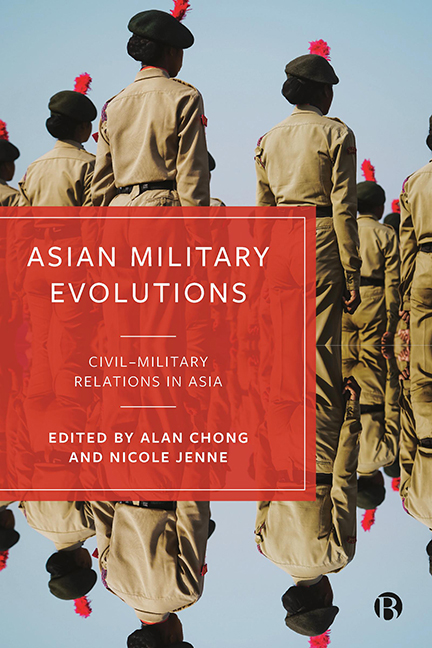Book contents
4 - Militarizing Governance: Informal Civil–Military Relations and Democratic Erosion in the Philippines
Published online by Cambridge University Press: 18 January 2024
Summary
Much time has passed since formal democratic rule was restored in the Philippines, but the military remains a powerful institution enjoying spheres of autonomy and various political prerogatives. Since the end of martial law in 1986, the country undertook re-democratization that sought to re-impose civilian supremacy and control over the armed forces through legal and institutional reforms. Though necessary, this has not been sufficient in keeping the military in the barracks during serious political crises and preventing its exercise of undue influence in different policy areas as well as matters related to defence and security (Arugay, 2011). Furthermore, by focusing on the military during the democratic transition, other institutions within the security sector such as the police and the intelligence services failed to undergo significant reform efforts.
Like other third wave democracies, the Philippines attempted to embark on reforming the military given the critical role it played as an institutional partner of the Marcos dictatorship. The push for democratizing civil–military relations was reinforced by the experience of numerous mutinies and political interventions carried out by military officials during periods of legitimacy crises faced by civilian governments. Thus, the Aquino administration (1986–92) was subjected to seven coup attempts from politicized and disgruntled junior officers, some of whom were the leaders of the putsch that led to the 1986 People Power Revolt (Final Report, 1990). Military intervention led by the top brass resulted in the ousting of democratically elected president Joseph Estrada in 2001. The military withdrew its allegiance from the president and transferred it to the constitutional successor Vice-President Gloria Macapagal Arroyo. This paved the way for a more politicized role of the military under the settings of a polarized elite conflict from 2001 to 2010 (Arugay, 2011). Since then, the military made significant commitments to transform itself as an institution through the framework of SSR, particularly the adoption of democratic principles such as transparency, accountability, respect for human rights and political neutrality (Hernandez, 2014). The government also embarked on a modernization programme that aims to equip the military with a ‘credible defence posture’ to defend the territorial integrity of the republic (de Castro, 2014) and divert the military mission from internal security to external defence.
- Type
- Chapter
- Information
- Asian Military EvolutionsCivil-Military Relations in Asia, pp. 68 - 89Publisher: Bristol University PressPrint publication year: 2023



